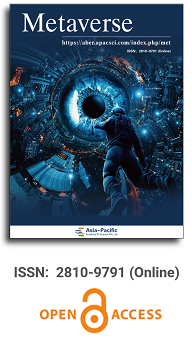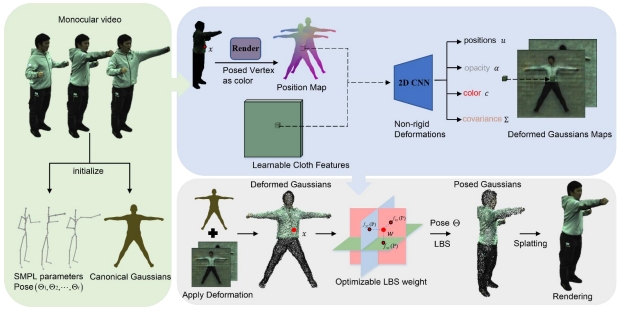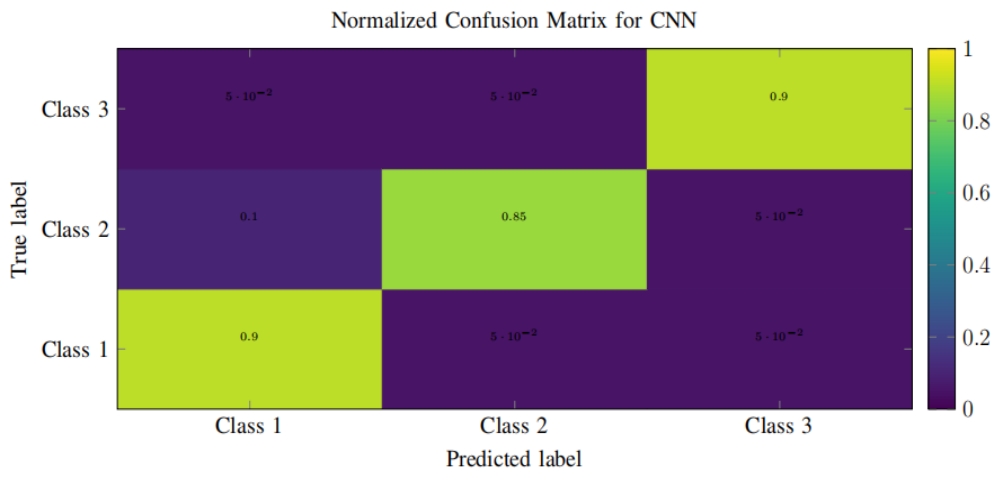
Asia Pacific Academy of Science Pte. Ltd. (APACSCI) specializes in international journal publishing. APACSCI adopts the open access publishing model and provides an important communication bridge for academic groups whose interest fields include engineering, technology, medicine, computer, mathematics, agriculture and forestry, and environment.



Artificial intelligence (AI) applied to public management
Vol 3, Issue 2, 2022
Download PDF
Abstract
The implementation of systems based on artificial intelligence (AI) has passed the barrier of the academic field and due to its potentialities has been developing in other fields such as public management so there is an urgent need to have an updated overview in this regard. This article aims to address the analysis of AI by highlighting its transcendence in the field of management, public administration and government, highlighting the significant opportunities, impact assessment and the potential posed by AI. The present review provides a panoramic and significative overview about AI and its impact on the field of management and public administration, about its achievements, as well as sensitive controversies. Finally, the critical opportunities and challenges of AI application in the public sector are shown.
Keywords
References
- Press G. Top 10 hot artificial intelligence (AI) technologies. New York: Forbes; 2017.
- Chui M. Artificial intelligence the next digital frontier? Shanghai: Mckinsey and Company Global Institute; 2017.
- Park D. A study on conversational public administration service of the Chatbot based on artificial intelligence. Journal of Korea Multimedia Society 2017; 20(8): 1347–1356.
- Abduljabbar R, Dia H, Liyanage S, et al. Applications of artificial intelligence in transport: An overview. Sustainability 2019; 11(1): 1–24.
- Dwivedi YK, Hughes L, Ismagilova E, et al. Artificial intelligence (AI): Multidisciplinary perspectives on emerging challenges, opportunities, and agenda for research, practice and policy. International Journal of Information Management 2019; 66: 1019–1034.
- Helbing D, Frey BS, Gigerenzer G, et al. Will democracy survive big data and artificial intelligence? In towards digital enlightenment. New York: Springer; 2019. p. 73–98.
- Cath C, Wachter S, Mittelstadt B, et al. Artificial intelligence and the ‘good society’: The US, EU, and UK approach. Science and Engineering Ethics 2018; 24(2): 505–528.
- Henman P. Improving public services using artificial intelligence: Possibilities, pitfalls, governance. Asia Pacific Journal of Public Administration 2020; 3: 1–13.
- Mikhaylov S, Esteve M, Campion A. Artificial intelligence for the public sector: Opportunities and challenges of cross-sector collaboration. Philosophical Transactions of the Royal Society A: Mathematical, Physical and Engineering Sciences 2018; 376(2128): 1–21.
- Sun TQ, Medaglia R. Mapping the challenges of artificial intelligence in the public sector: Evidence from public healthcare. Government Information Quarterly 2019; 36(2): 368–383.
- Duan Y, Edwards JS, Dwivedi YK. Artificial intelligence for decision making in the era of big data—Evolution, challenges and research agenda. International Journal of Information Management 2019; 48: 63–71.
- Agarwal PK. Public administration challenges in the world of AI and Bots. Public Administration Review 2018; 78(6): 917–921.
- Shava E, Hofisi C. Challenges and opportunities for public administration in the fourth industrial revolution. African Journal of Public Affairs 2017; 9(9): 203–215.
- Wirtz BW, Weyerer JC, Geyer C. Artificial intelligence and the public sector-applications and challenges. International Journal of Public Administration 2019; 42(7): 596–615.
- Galloway C, Swiatek L. Public relations and artificial intelligence: It’s not (just) about robots. Public Relations Review 2018; 44(5): 734–740.
- Zheng Y, Yu H, Cui L, et al. SmartHS: An AI platform for improving government service provision. In 32nd AAAI conference on artificial intelligence. AAAI: Association for the Advancement of Artificial Intelligence 2018; 36: 7704–7712.
- Vogl TM, Seidelin C, Ganesh B, et al. Algorithmic bureaucracy: Managing competence, complexity, and problem solving in the age of artificial intelligence. SSRN Electronic Journal 2019; 24: 159–167.
- Mehr H, Ash H, Fellow D. Artificial intelligence for citizen services and government. Harvard: Harvard Kennedy School; 2017. p. 1–12.
- Abbasi M, Hanandeh A. Forecasting municipal solid waste generation using artificial intelligence modelling approaches. Waste Management 2016; 56: 13–22.
- Kouziokas G. The application of artificial intelligence in public administration for forecasting high crime risk transportation areas in urban environment. Transportation Research Procedia 2017; 24: 467–473.
- Galanos V. Exploring expanding expertise: artificial intelligence as an existential threat and the role of prestigious commentators. Technology Analysis & Strategic Management 2018; 31(4): 421–432.
- Bullock JB. Artificial intelligence, discretion, and bureaucracy. Be American Review of Public Administration 2019; 49(7): 751–761.
- Nadikattu RR. The emerging role of artificial intelligence in modern society. International Journal of Creative Research Noughts 2016; 4(4): 906–911.
- Etschei J. Artificial intelligence in public administration. In: Lindgren I, Janssen M, Lee H, et al. (editors). International Conference on Electronic Government; 2019 Sep 2-4; San Benedetto Del Tronto, Italy. New York: Springer; 2019. p. 248–261.
- Allam Z, Dhunny ZA. On big data, artificial intelligence and smart cities. Cities 2019; 89: 80–91.
- Ismagilova E, Hughes L, Dwivedi YK, et al. Smart cities: Advances in research—An information systems perspective. International Journal of Information Management 2016; 47: 88–100.
- Morkhat PM, Ponkin IV, Markhgeym MV, et al. Artificial intelligence versus public administration: Limitations of application. Humanities & Social Sciences Reviews 2019; 7(3): 516–520.
- Butcher J, Beridze I. What is the state of artificial intelligence governance globally? The RUSI Journal 2019; 164(5–6): 88–96.
- Manyika J, Lund S, Chui M, et al. Jobs lost, jobs gained: Workforce transitions in a time of automation. Washington, D.C.: Mckinsey Global Institute; 2019.
- Jarrahi MH. Artificial intelligence and the future of work: Human-AI symbiosis in organizational decision making. Business Horizons 2018; 61(4): 577–586.
Supporting Agencies
Copyright (c) 2022 Ocaña-Fernández Yolvi, Valenzuela-Fernández Luis Alex, Vera-Flores Miguel Angel, Rengifo-Lozano Raúl Alberto

This work is licensed under a Creative Commons Attribution 4.0 International License.

This site is licensed under a Creative Commons Attribution 4.0 International License (CC BY 4.0).

Prof. Zhigeng Pan
Professor, Hangzhou International Innovation Institute (H3I), Beihang University, China

Prof. Jianrong Tan
Academician, Chinese Academy of Engineering, China
Conference Time
December 15-18, 2025
Conference Venue
Hong Kong Convention and Exhibition Center (HKCEC)
...
Metaverse Scientist Forum No.3 was successfully held on April 22, 2025, from 19:00 to 20:30 (Beijing Time)...
We received the Scopus notification on April 19th, confirming that the journal has been successfully indexed by Scopus...
We are pleased to announce that we have updated the requirements for manuscript figures in the submission guidelines. Manuscripts submitted after April 15, 2025 are required to strictly adhere to the change. These updates are aimed at ensuring the highest quality of visual content in our publications and enhancing the overall readability and impact of your research. For more details, please find it in sumissions...






.jpg)
.jpg)

